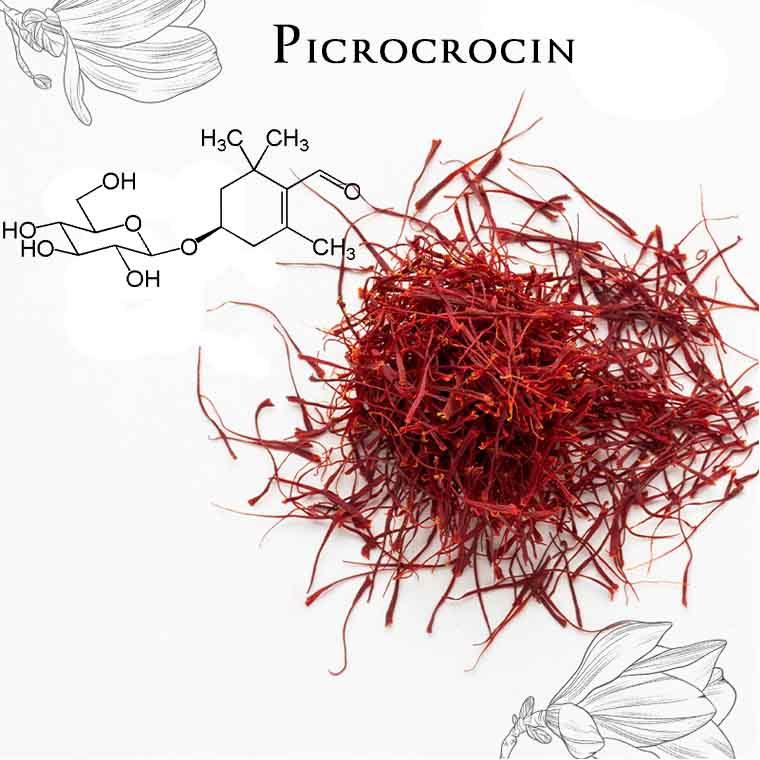Picrocrocin: The Flavor Indicator of Saffron and Its Importance in Saffron Quality
Picrocrocin is one of the three key compounds in saffron, specifically related to its flavor. This post will explore picrocrocin in detail, its role in saffron quality, and how it influences the sensory experience of saffron.
What is Picrocrocin?
Picrocrocin is a chemical compound found specifically in saffron stigmas and is responsible for saffron’s unique bitter taste. It is a main component of the aromatic and flavoring substances in saffron and helps in the identification and evaluation of saffron quality. Along with two other compounds, crocin and safranal, picrocrocin helps determine saffron’s quality.
Role of Picrocrocin in Saffron Quality
Picrocrocin is a crucial factor in determining saffron quality. It primarily affects the taste and aroma of saffron. Saffron with a high level of picrocrocin has a distinctive and complex flavor, creating a unique sensory experience for consumers. Therefore, the amount and quality of picrocrocin can directly impact saffron’s commercial value and market acceptance.
Effect of Drying Process on Picrocrocin
The drying process of saffron plays a fundamental role in preserving the amount and quality of picrocrocin. Improper drying or using unstable methods can lead to a reduction in picrocrocin levels, resulting in a decline in saffron’s flavor quality. Hence, selecting appropriate drying methods and carefully controlling the conditions is crucial.
Testing and Measuring Picrocrocin
To evaluate saffron quality and the amount of picrocrocin present, various laboratory methods can be used. One of these methods involves chromatographic techniques, which can measure the precise amount of picrocrocin. These tests help saffron producers and traders ensure that their saffron meets international quality standards.
Key Considerations When Selecting Saffron Based on Picrocrocin
When buying saffron, paying attention to the quality of picrocrocin can help you select higher-quality saffron. Saffron with a higher level of picrocrocin generally has better flavor and aroma and holds greater market value. Therefore, examining the quality of picrocrocin is an important aspect of choosing high-quality saffron.
Conclusion
Picrocrocin is a vital component in determining saffron quality, directly affecting its taste and aroma. Saffron production and drying processes should be conducted to preserve the amount and quality of picrocrocin to ensure the final saffron has a distinctive and desirable flavor. Ultimately, understanding and evaluating picrocrocin helps traders and consumers identify high-quality saffron and make the most of it.



